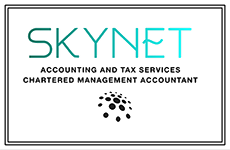Dealing with conflicting annual leave requests fairly
Following the roadmap announcement one HR software provider reported an eight-fold increase in annual leave requests compared with the same day last year. With workers now keen to take their annual leave once coronavirus restrictions are lifted, how should you tackle competing annual leave requests, and can you decline requests that you can’t accommodate?

Although restrictions on UK holidays are due to be lifted on a phased basis from 12 April 2021, international holidays won’t be permitted until at least 17 May 2021 and even that is “subject to review”. That said, the government hopes all remaining lockdown restrictions will be removed from 21 June 2021, with the result that the period from late June to September is fast becoming even more popular than it normally is for workers to book their annual leave. Added to that is the fact that many staff have surplus annual leave to take, having carried some over from 2020’s allowance and not having taken any leave yet in 2021.
Under the Working Time Regulations 1998, although workers are entitled to a minimum of 5.6 weeks’ paid annual leave, employers are not obliged to agree to a request to take leave at a particular time. If an employer receivse competing requests for annual leave, they’ll need to prioritise them in a fair, consistent and non-discriminatory way, e.g. first-come, first-served or drawing names out of a hat. The employer should check the terms of their holidays policy to see if it specifically covers the issue. Once they’ve fairly dealt with approving the annual leave requests that they can accommodate, they can then decline those that they can’t - perhaps offering those workers alternative summer dates, so that they’re allowing everyone the opportunity to take at least some of their annual leave over the summer, whilst still ensuring there’s no detrimental impact on business operations.
Related Topics
-
Simpler Recycling rules take effect
New rules on how workplaces must sort their waste and recycling have taken effect from 31 March. What are the key changes to be aware of?
-
New CGT reporting tool
Self-assessment returns aren’t set up for the change in capital gains tax (CGT) rates on the government filing system and will require a manual adjustment for 2024/25 to ensure the correct amount is paid. Why is there a problem and can a new online tool help?
-
MONTHLY FOCUS: THE ENTERPRISE INVESTMENT SCHEME QUALIFYING CONDITIONS
The enterprise investment scheme (EIS) is a generous collection of tax reliefs aimed at encouraging private investment into relatively young companies. In this Focus, we look at the qualifying conditions relating to the investor and the issuing company that must be met in order for a claim for relief to succeed.





 This website uses both its own and third-party cookies to analyze our services and navigation on our website in order to improve its contents (analytical purposes: measure visits and sources of web traffic). The legal basis is the consent of the user, except in the case of basic cookies, which are essential to navigate this website.
This website uses both its own and third-party cookies to analyze our services and navigation on our website in order to improve its contents (analytical purposes: measure visits and sources of web traffic). The legal basis is the consent of the user, except in the case of basic cookies, which are essential to navigate this website.